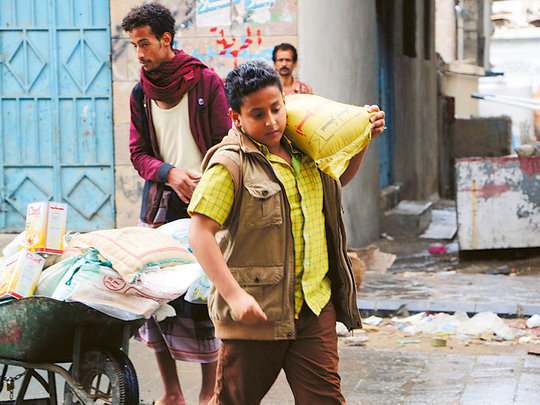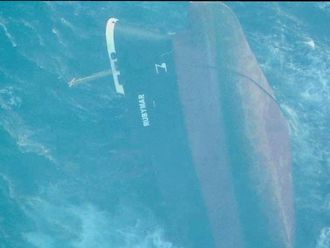
Riyadh: Saudi Arabia and the United States said Thursday a renewable, five-day cease-fire in Yemen’s war would start soon to facilitate aid to millions of civilians in need, if Iran-backed militiamen and their allies also agree to stop fighting.
At a joint news conference, Saudi Foreign Minister Adel Al Jubeir said the kingdom would halt air strikes in Yemen because it is determined to expand relief assistance to the Yemeni people. Saudi Arabia will provide $274 million in new assistance, he said.
Secretary of State John Kerry said the so-called “humanitarian pause” wouldn’t start for several days, enough time for diplomatic efforts to convince Al Houthi militiamen and their backers to accept the terms of the deal. He said aid organizations also needed time to coordinate the best strategy for getting food, fuel and medicine into and around the country.
The announcement was made after Kerry met King Salman and other top Saudi officials in Riyadh. Kerry praised the king for seeking a peaceful resolution to Yemen’s war and for inviting “all relevant parties” to an upcoming peace conference in Saudi Arabia.
Kerry said the cease-fire would mean “no bombing, no shooting” and no repositioning of forces.
But he and Al Jubeir insisted the feasibility of the plan depended on Al Houthis and the Iranians agreeing to it and not trying to exploit the lull in fighting. They said they would provide an update Friday in Paris, where they will gather with the foreign ministers of other Arab countries.
The cease-fire pledge comes as the militiamen and supporters of former Yemeni President Ali Abdullah Saleh consolidate their hold over parts of the southern port city of Aden. The militiamen captured the area’s presidential palace, officials said Wednesday, in another sign of their resilience in the face of Saudi-led air strikes.
Yemen had long suffered from desperate poverty, political dysfunction and Al Qaida’s most lethal branch. It became more unstable in recent months as Al Houthis, seized much of the country and chased Yemen’s internationally recognized president into exile. That prompted the Saudis and other Gulf Arab states to intervene. The Saudis also have been backing pro-government forces on the ground trying to fight back against Al Houthis.
Kerry met earlier Thursday in the Saudi capital with Yemen’s exiled president, Abd Rabbo Mansour Hadi, and his vice president and foreign minister.
“Hopefully we’ll see you in Sana’a soon,” Hadi told the top American diplomat. Sana’a, Yemen’s capital, is controlled by Al Houthis.
“Ah,” Kerry replied, “there’s some work to do.”
More strikes by the Saudi-led coalition throughout the country Wednesday killed dozens of militiamen, according to security officials. But the mission has shown no sign of achieving its ultimate objectives or pushing Al Houthis out of population centers and restoring Hadi’s government.
The UN says at least 646 civilians have been killed since the start of the bombing campaign March 26. Some 300,000 have been uprooted from their homes.












